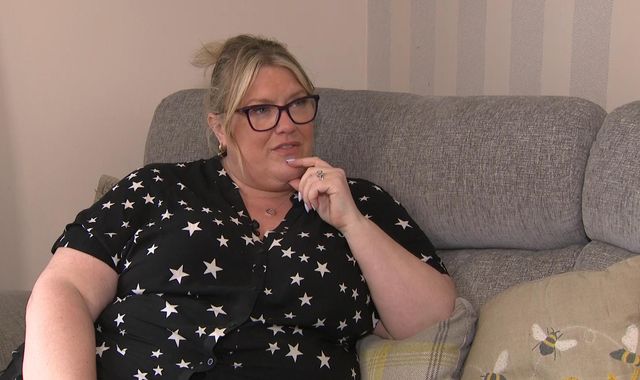Over a third of MS sufferers avoid seeking help because of embarrassment, research reveals
27 April 2024, 21:01 | Updated: 28 April 2024, 05:21

Over a third (38%) of people living with multiple sclerosis have avoided seeking help for symptoms like bladder and sexual problems due to embarrassment, according to new research led by MS Society.
A survey of 1,400 people with the condition in the UK found that 85% of people find one or more of their symptoms embarrassing.
The findings from a collaboration of multiple sclerosis (MS) charities have been released as part of a new campaign, MS Unfiltered, to mark MS Awareness Week 2024.
MS Society, MS Trust, MS Together, MS-UK, the Neuro Therapy Network, Shift.ms and Overcoming MS all worked together on the research.
More than 130,000 people live with MS in the UK, and 130 people are diagnosed weekly, according to MS Society.
The condition affects the brain and spinal cord, impacting how people move, think and feel.
Symptoms include fatigue, numbness and tingling, loss of balance or dizziness, stiffness or spasms, tremors, pain, bladder and bowel problems, vision problems and issues with memory and thinking.
Kerry Riches, 40, was diagnosed with MS aged 24.
She says her "first symptoms were pins and needles, tripping over feet, loss of balance, generally not feeling well" as well as severe pins and needles in her fingertips.
She is positive about having the condition, but she did feel "embarrassed" the first time she had an "accident in the car".
Read more from Sky News:
TV doctor struck off for exchanging Botox for sex at his clinic
Woman has combined transplant in world first
Common sweetener can damage gut
She now talks openly about her condition on social media, encouraging people to do the same.
The charity, which funds research into MS, found that over half (59%) of people with MS they were embarrassed by bladder issues, while more than a quarter (27%) were embarrassed by sexual dysfunction.
Just under half (48%) were embarrassed by walking issues, such as stumbling or not walking in a straight line.
Living with "embarrassing" symptoms has meant one in five (22%) people keep their symptoms hidden from their partners, with half (49%) saying they wouldn't feel comfortable raising sexual dysfunction problems with a healthcare professional.
Nick Moberly, chief executive at MS Society, says: "Although MS symptoms like bladder issues, sexual dysfunction and mobility problems are common, they can be difficult to talk about.
"Troublingly, our new research shows many people feel embarrassed by their MS symptoms. This has resulted in people avoiding seeking medical help and even feeling the need to hide their symptoms from loved ones."
As part of MS Awareness Week, the charity is urging people with symptoms to seek help. Their free MS helpline is available for anyone needing help, and more information is available on their website.
(c) Sky News 2024: Over a third of MS sufferers avoid seeking help because of embarrassment, research reveals






















